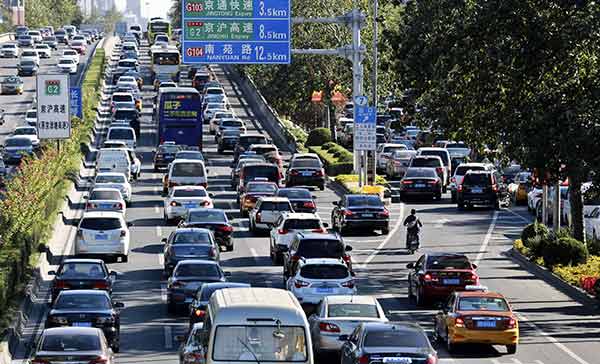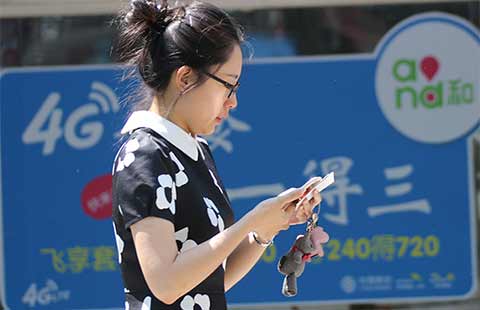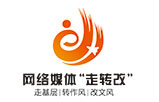Road pricing vs car ban to control air pollution
By BAI PING (China Daily) Updated: 2016-01-13 08:03
 |
|
A traffic jam during peak hours in Beijing. The capital city currently has more than 5 million automobiles.[Photo by Feng Yongbin/China Daily] |
In Beijing, private drivers who defy the car ban in response to air pollution and traffic congestion risk a 100-yuan ($15) fine each time they are caught. It has never been a popular policy, especially when the restrictions get tougher for extraordinary reasons.
During the heavy smog from Dec 19-22 when private cars were only allowed on the streets on alternate days, the city police issued a whopping 112,800 tickets, including 44,000 on the last day.
Those breaking the rules could have adopted a utilitarian approach that the benefits of having things going along as usual had outweighed the cost of their infringement. Or they thought they've paid hefty sums for their right to use the roads and their vehicles and it is unfair and unjust to be pulled from the streets from time to time.
Worse, many thought city managers had picked an easy target or even barked up the wrong tree as they seemed to focus on residents rather than high-polluting industries and factories.
Obviously, the economic notion of external costs that a driver causes to others was not in their equations. The sentiment also prevailed over the fact that the bureaucratic fiats had helped reduce PM2.5, the most dangerous pollutants in the air, while bringing more blue-sky days.
However flawed their reasoning could be, the public discontent cannot be ignored and it has prompted the question: Are there any other more efficient, less contentious ways to curb automotive emissions in the fight against the worsening smog?
Personally, I don't think most drivers would deliberately breach the car ban if they had other ways. Over the past several years, I've had a brush with the restrictions several times because of family emergencies, such as getting my wife to a hospital and my son to school when modes of public transportation were not available.
Among the few Chinese economists who have studied economic policies on smog, Ma Jun and Li Zhiguo suggest market intervention like road pricing and higher parking fees to make people drive less and be more conscious of the costs of the negative externalities or pollution they create.
Identifying motor-vehicle exhaust emissions as the second-biggest cause of smog after coal burning, they propose congestion fees for central parts of Beijing including Xicheng, Dongcheng, Chaoyang and Haidian districts in their new book Economic Policies on PM2.5 Reduction.
They consider the rapid increases in car ownership and usage in the Chinese capital a case of "market failure" and urge the city to auction license plates to people who need a car most, which is considered to be more efficient than its current lottery system.
A blanket car ban for days or weeks is not an option in their book that is touted by Wu Jinglian, a prominent Chinese economist and advocate of a market economy, as the "first systematic economic study" on air pollution in China that should be a must-read for decision-makers.
Instead, the researchers believe temporary measures like taking cars off the road, and shutting down factories and construction sites would contribute little to the solution of a fundamental, structural problem.
Such views may just reinforce the skepticism of residents who have been wary of the heavy-handed, top-down approach.
I doubt if everybody would like the idea of paying more in order to drive more. But if drivers have to make a choice, probably most would opt for driving less rather than having to have their cars grounded.
Contact the writer at dr.baiping@hotmail.com
- Canton Fair data fuels export optimism
- VW China's environmental program big hit in Urumqi
- Beijing puts restriction on property buyers in Tongzhou district
- Central bank drains 220b yuan from market
- Teapot craftsman makes innovation, passes down techniques
- Positive attitude goes long way
- China's CRRC Industrial Investment opens European office in Budapest
- Half of new state vehicles to be powered by new energy

















